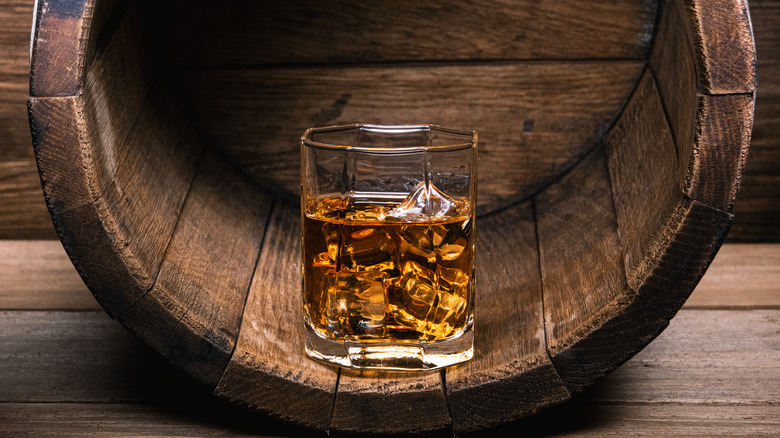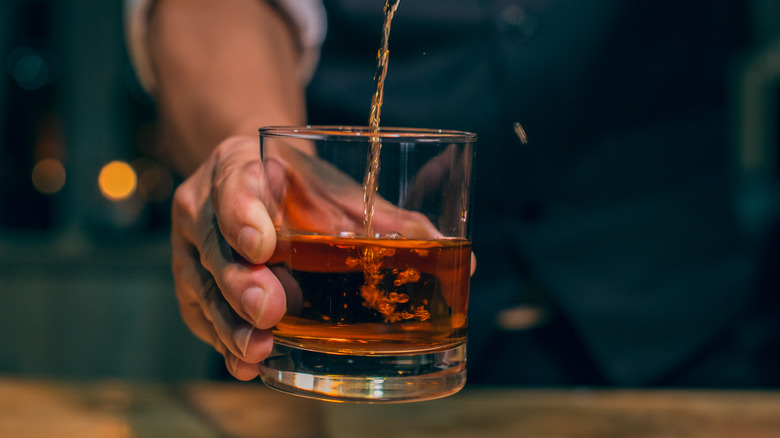The Scientific Reason Aged Whiskies Have More Flavor
What is it about whiskey? It may be the amber color, the toasted vanilla smell, or maybe it is the peaty smokiness that comes from the fires used to dry its grains. Whatever the case may be, our love of whiskey goes back centuries, about 1,000 years, when monks brought the knowledge of distillation to Scotland and Ireland (via Bottleneck Management). Since then, whiskey has been heavily a part of the culture in those regions and is now one of Scotland's biggest exports, according to Planet Whiskies. Scotch and Irish whiskey as well as bourbon are now widely enjoyed around the world.
The many varieties of whiskey are made from a variety of grains such as corn, rye, barley, or wheat and is aged in oak barrels before consumption. There are hundreds of whiskies producers all over the globe attempting to make smoother, more flavorful drinks, and there is one thing they all know to be true: the longer it stays in the barrel, the more flavor the whisky will have.
It's all in the oak
As with other barrel-aged alcohols, it's been proven that whiskey that has been barrel-aged for a long period will develop flavors that a young whiskey simply can't have. The Whiskey Foundation says 70% of whiskey's flavor is obtained through contact with the oak barrels it is aged in, and for liquor to take on theses desired characteristics, it must remain in the barrel for a minimum of three years.
Smithsonian Magazine states that whiskey is also influenced by the quality of its barrel and environment: Whiskey, like many wines, is aged in oak barrels that are toasted to soften the harshness of the young liquor and infuse it with notes of vanilla, butter, and spices. The BBC reports that higher temperatures in dry climates will evaporate the water in whiskey barrels and increase the alcohol content, or ABV, therefore shortening the time the liquor needs to mature. But, the news site reports that in cooler and more humid climates, the opposite is true: Alcohol content falls faster as the whiskey ages, and the spirit can be left in-barrel for decades. This means that the whiskey will have longer contact time with the oak and absorb more of the woody, smooth notes — and that you might want to try "aging" your young whisky at home.

